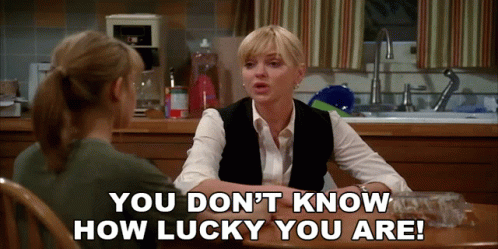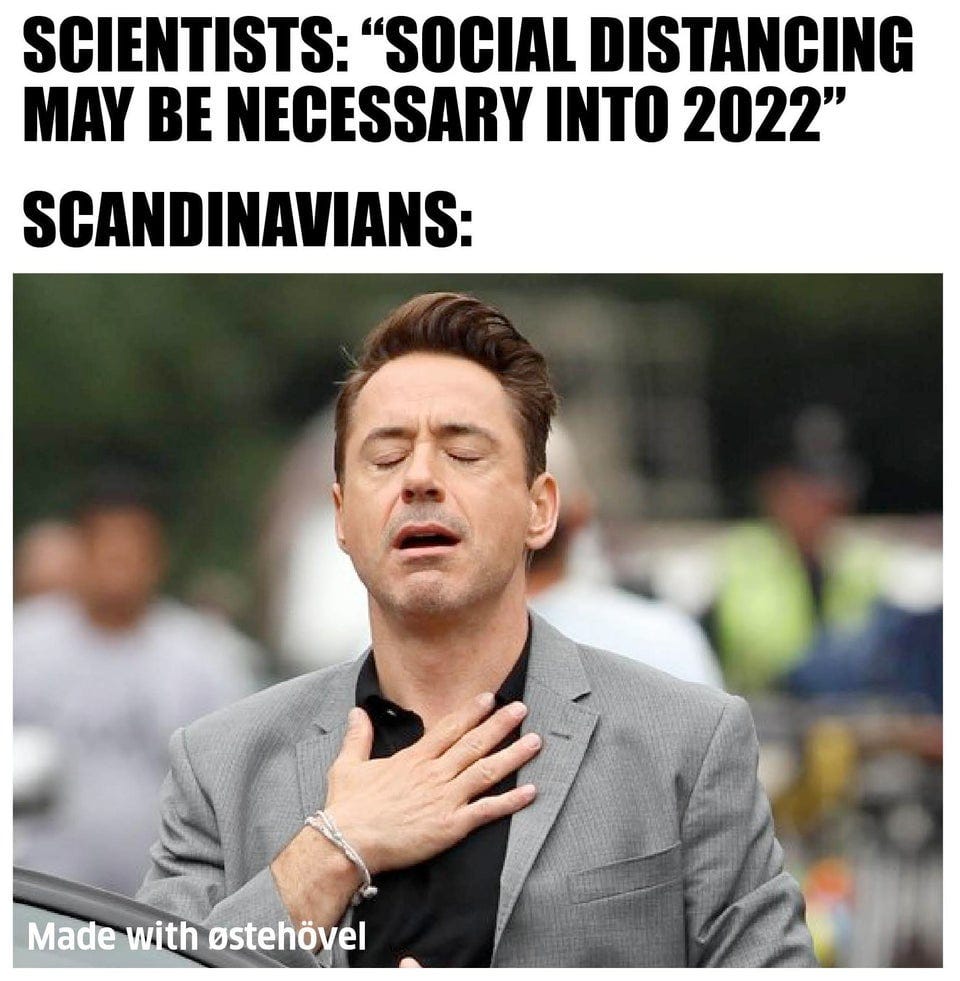Are you interested in life in Denmark? Then you may want to also check out these:
There are already two posts about life in Denmark. And those touch on some of the most important points- at least in the eyes of a Greek immigrant.
Do they cover everything? Far from it. Definitely not the smaller details, those that make any country unique and in this case, make Denmark so… Danish. This is what this post will attempt to cover: cultural characteristics of Denmark, that might not be the first ones that come to mind when talking about the country, but that definitely pop out when you come from a country like Greece. Some of them are funny; some of them dead serious. I ‘ll start with the funny ones and slowly work up the seriousness ladder.
If the main differences are covered in the first two posts, is this post even relevant?
I think so. Not because it is more important than the rest, but because the differences listed here are not so evident: a tourist visiting Copenhagen for a week cannot spot them; a travel blogger covering Denmark will miss them. You need to be part of the Danish society to notice them. And just like all things that are considered normal in a society, you notice them more easily, if they are not normal to you. That is, when you are an immigrant.
Also, this post is packed with memes. Lucky you.

Lunch time
… is at 12 o’clock the latest. Some of my colleagues will even go for lunch at 11.30. I am not talking about people working in construction, who wake up at 5am, start working at 6 and by noon, they have burnt a day’s worth of calories. No, I am talking about office workers, whose main physical activity is walking to the coffee machine and back. Carpal syndrome and tripping over folded carpet are the most common accidents.
In Greece, there is no designated lunch break time. Hell, there is barely any lunch break. People will eat usually a snack at their desk and power through the day, until they go home and eat a heavy dinner. Even if there was a lunch break, it would most likely be around 14.00. Definitely not before 13.00.
As with all things of course, it is a habit. After the first week of feeling like eating a second breakfast, lunch at noon feels perfectly normal. Not only that, but once the body adjusts to that, the stomach starts growling if the usual lunch time is not honored.
Drinking in public
… is ok. Not just in public; In public transport as well. The instances that this might not apply, is the train to Sweden and if the (bus) driver thinks you already had too much, in which case you will have to choose between your beer and the bus.
Bear in mind, this has to be seen through the lens of a culture that is very tolerant to alcohol. Alcohol is not frowned upon. Being -very- drunk, is not frowned upon. People might even sympathize with you and try to help you, if they see you having a hard time in the train. This might actually be the only time people will not mind their own business.
Julefrokost
Julefrokost literally translates to Christmas lunch. Traditionally, it is a meal that drags for hours: starts as lunch and next thing you know, you are dancing with your creepy uncle. As the name suggests, it takes place the weeks leading to Christmas.
The interesting part is that, the Julefrokost tradition, extends to any kind of organization: clubs and companies will also have their own Julefrokost. That means that, companies will organize a -usually fancy- dinner out, for all their employees. And that is where things can get out of control. Given the once-a-year occurrence and the large amounts of alcohol, Julefrokost has also gained the reputation of an event where anything goes. That is especially pronounced when we ‘re talking big companies, where the Christmas lunch will involve thousands of people. People will drink A LOT with everything that might involve: ridiculous dances, competitions or making out between people who... shouldn’t be making out.
Long story short, things can get out of hand. Experiencing it through the eyes of someone who grew up drinking in moderation, it is strange, even fascinating. Sometimes it even feels like people have a lot of suppressed feelings, that were waiting for that one night to surface. No Julefrokost anecdotes will be included here, but eventually I will write about the sharp dressed man who pulled his pants down in a crowded bar. Some day.

People “shutting down” to temper
Greek people have a… temper. It is not unusual to see someone flushing or shouting, if someone else is making their life difficult.
Imagine this: you have walked into the local tax office to settle some weird fine you received from the authorities. You run into a not-so cooperative employee behind the counter. Maybe they didn’t have their coffee yet. Maybe three people were complaining to them right before you. Maybe, maybe, maybe.
You are arguing this fine makes no sense, you have brought some evidence, yada yada yada. The employee is indifferent, saying you need some more signatures, they direct you to another office and things start to get complicated. Before you know it, you are being re-directed back and forth between desks and no one wants to assume responsibility. Seeing them not trying to help makes your blood boil.
In Greece, there is a good chance this would be cause for an argument. Danes or the other hand, are much more composed. In fact, the most angry I have seen Danes be, is when someone is walking in the bike lane.
Shouting at someone would definitely not help you, as people would completely freeze and shut down. Once you lose your temper, you ‘ve lost the argument. Even if you are right, people will refuse to converse, until you have calmed down.
To be clear, I am not encouraging anyone to shout to people when in Greece. Just saying that, people are more used to it and do not freak out when it happens.
Minding your own business
Also at the heart of Scandinavian culture, is the urge not to intrude. Strangers will only talk to you, if they have a very specific reason to do so. Or if they are drunk.
Small exception to this rule might be that, if people notice that you are a tourist struggling to figure things out, they might jump in to help. Other than that, most probably they will wait for you to ask for assistance.
Over the years, I unknowingly adopted the mind-my-own business mentality. Don’t make small talk, don’t make eye contact, don’t be social out-of-place.
This transformation, became apparent in the US. Not in a deep, philosophical conversation, or in team-building exercise. In a Walmart.
I am standing in line to pay, holding only a few items: milk, cereal and some bananas.
- “Bananas. Thanks for reminding me”, said a woman in her 50’s, who was also about to stand in line. Before I had time to process, she started walking towards the fruit section. I managed to squeeze out a smile, but she had already turned her back to me.
A stranger talked to me. For no reason. A stranger. A total stranger.
This thought followed me home1 and it made me realize how much Denmark had changed me. I would not be the person easily talking to strangers even before moving abroad, but I also wouldn’t find it odd. Definitely not memorable. But there I was, holding my bananas, thinking that little by little, Scandinavia had rubbed off on me.

Trust in the government
During the second wave of covid, a Danish friend, let’s call him Morten, and I were out for a walk. The instruction from the authorities was to go out , but do not crowd. People were encouraged to go to parks and nature, as long as they were not sitting in groups and respected the social distancing guidelines.
So we did. We went out for a walk.
- “People do not complain much about the whole covid situation and lockdown. Everyone seems to be taking it surprisingly well”, I said, unprepared for what was about to come.
- “Well, yeah, the government said so and we just trust they know best.”
That was Morten’s casual reply, who probably didn’t realize what had just come out of his mouth.
Trust in the government.
Growing up in a country where, unfortunately, corruption is part of everyday life, this worldview was mind-blowing. If the government issues an instruction, the first thing that comes to mind is, what is their angle? Politicians are often involved in scandals, financial or not, exploiting every last drop of power their position allows.
To put it simply, if the Greek government says it is mandatory to wear masks, the first thing that comes to mind is that they have some affiliation to the company that produces them.
You think I am exaggerating. When the first covid vaccines were made available, the government made sure that its members get vaccinated first, even before health workers. So that’s that.
This is not an article about Greek politics. But being used to scandals like that, means that one has little trust in the government. Actually, zero trust in the government.
Parenthesis over and back to Morten. In one simple sentence, he had unveiled a cultural chasm. Trust between people, is a distinct trait of Danish society. But it extends further than that; it extends also from people towards the government. Regardless what people have voted for, they trust that their government is looking out for them, and whatever decisions it makes, are taken in good faith.
I went on to explain that, this is not something that I am used to2; that I am jealous he feels that way; that he should be grateful to have grown up in a country where trust, is not only fundamental, but also abundant.
Your turn
If you live/have lived abroad, what is the one thing that:
it was considered normal by locals,
tourists could not spot and
as an expat/immigrant, you thought it was very weird, or even fascinating?
And obviously made an impression, since I remember it years later.
It’s been a few years since this happened and it feels that since then, people tend to counter facts with opinions more and more. As a result, it feels that the decline in trust in the government is a global phenomenon.







A cool post about cultural differences and how we learn to adjust our view about what's "normal" when we live abroad.
One of my biggest cultural shocks was in the US - in the deep South - where everyone around was *so kind* to me and I instantly thought they must want something from me. As I'd have thought back in Romania, where I was coming from. It took me a few good weeks to get used to the fact that people were just kind for no reason. And smiling for no reason apparently. And supermarket cachier ladies calling me "honey" - for no reason. :)
Speaking of “walking in the bike lane” - that was the very first thing I did (being completely unaware) my very first day of my new job in Copenhagen…😜😵💫